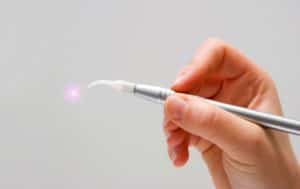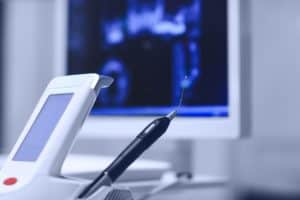Millennials Are Investing In Their Smiles!

83 million people in the United States belong to the millennial generation, born between 1982 and 1996. Fondly labeled as the economy and industry killers, millennials are also described as self-involved, self-expressive, and receptive to new ideas and ways of living. These common characteristics have enabled millennials to shape the face of nearly every industry and practice in the U.S., including dentistry!
Since June 2019, millennials have officially overtaken the Boomer generation (born between 1946 and 1964) as the largest portion of adults in the U.S. population. Millennials are setting the standard for what it takes to attract and retain patients to dental practices. Millennials dentists and patients alike are shaping the future, technology, and trends of dentistry. At Adam Brown DDS, we love all of our patients young and old, but we know the influence of the millennial population on dentistry. Many of the changes are smart and offer an exciting future in dental care.
The digital world and dentistry
Millennials were born into a digital world that rapidly transformed before their eyes as they came of age. With high-tech literacy, technology permeates every corner of life for millennials, and as a result, they have high expectations for what tech will deliver. Millennials expect seamless, painless technology, with fast results, and don’t necessarily need the recommendation of a professional; the age of the Internet means information travels fast, and information is around every corner.
The dental industry still remains dominated by boomers, with 42% of current dentists being 55 years or older. In the next few years, we will see more and more practices begin the transition of handing off the dental industry to millennials, who will usher in the next wave of the best and latest practices.
Practices have already begun to shift to accommodate millennial demand. Research from the Oral Health Foundation found in June 2020, that millennials in the United Kingdom are spending three times the national average on dental treatments. That comes out to about £750 a year, per person! The American Academy of Cosmetic Dentistry (AACD) estimates that Americans spend 2.75 billion on cosmetic dentistry each year and millennials made up 60 % of the clientele. Millennials outspend every other generation so far when it comes to working on their smiles.
The self-involvement and confidence to seek and try out new ideas have made the millennial population more receptive to and in demand of the latest oral health trends and technologies. When a millennial has an oral health problem, instead of calling the dentist, they may be more inclined to Google for an answer, seek out an FAQ, or turn to blogs like this for advice. A millennial may be more inclined to read practice and product reviews, and cost comparisons; maximum convenience and low cost are key.
What are millennial patients spending money on?
In a word, healthcare! In the spirit of convenience and efficiency – why shouldn’t you invest in yourself and your healthcare? Millennial patients spend more on dentistry treatments because they understand the importance of healthy teeth.
They are spending more on cosmetic treatments because they understand the impact of a healthy smile on your self-esteem. The generation that grew up on the internet is more than aware of how far Adobe Photoshop, Face Tune, or even at-home-whitening kits can’t cut it when there’s always a chance of someone else posting a photo or video of you without editing. Pearly white teeth and celebrity Instagram smiles are in demand, and millennials are willing to make the change and pay the price for a perfect first impression.
Some of the most popular cosmetic density solutions for millennials revolve around smile repairs, such as:
- Professional teeth whitening
- Porcelain veneers
- Teeth reshaping
- Tooth-colored fillings & crowns
- Cosmetic tooth bonding and contouring
- Porcelain tooth inlays and onlays
- Invasalign
Teeth whitening is by far the most popular dental treatment, with at least 4 in 10 people under 35 having tooth whitening treatment.
Brief procedures with little to no pain, and fast, visible results are very popular. With the rise of self-care lifestyles among the millennial population, smiles are associated with beauty as much as health.
In turn, millennial patients generally experience fewer oral health problems like tooth decay or tooth loss than older generations, simply because of better access to dental care as a child and through young adulthood, and the age of their teeth overall. This means that the majority of money millennials choose to spend on their dental care is for cosmetic treatments, and less about treating clinical problems.
However, on the flip side, many underserved millennial Americans suffer from lack of consistent, quality dental care (resulting in the need for later cosmetic treatments), with reports from the American Dental Association citing:
- 35% report embarrassment related to their mouth and teeth
- 35% report problems chewing
- 30% experience anxiety about their oral healthcare
- 33% avoid smiling
- 38% say life, in general, is less satisfying due to the condition of their mouth and teeth
A barrier to dental care for many millennials is insurance. While millennials have higher standards about the appearance of their smile than other, older Americans, the strain remains between the inaccessibility between dental healthcare and cosmetic perfection. However, when millennials have secure job footing and benefits, they quickly seek out dental work, resulting in the influx of cosmetic treatments.
Let Adam Brown DDS help you strike a balance between baseline oral healthcare and cosmetic treatments.
Adam Brown DDS can help you achieve your ideals of a beautiful, healthy smile, at a reasonable cost, with a team of dental professionals that are there for you every step of the way. If you’re looking for a new dentist to build a lifelong relationship with and to set up a plan for achieving your dream smile, contact Dr. Brown and the team at (704) 289-9519.



